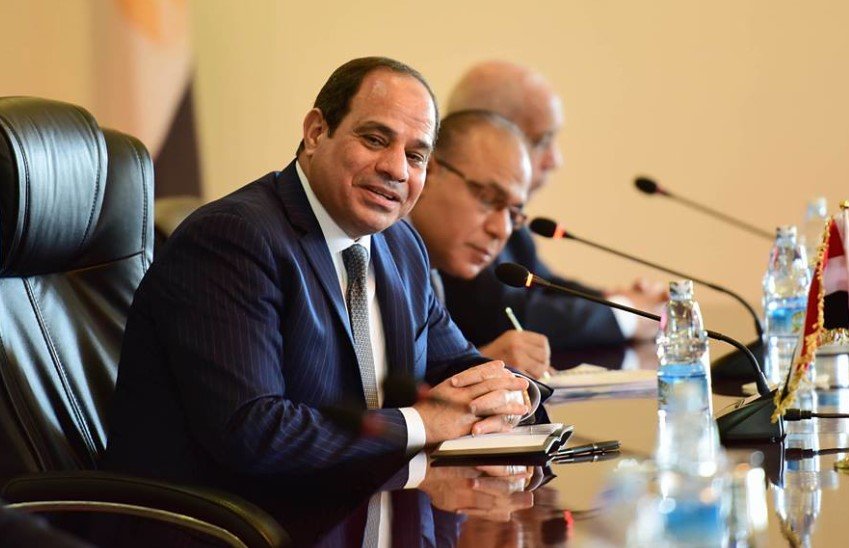Ugandan President Yoweri Museveni used his three-day working visit to Cairo to pitch Uganda as a fertile ground for Egyptian investment, telling business leaders he’s ready to back projects that offer tangible benefits and long-term growth.
High-Profile Arrival and Warm Reception
Museveni landed in Cairo on Monday, August 11, 2025, stepping off the plane into a warm welcome at Cairo International Airport. His host, Egyptian President Abdel Fattah El-Sisi, rolled out the formal red-carpet reception at Al-Qubbah Palace.
The Ugandan leader didn’t waste time. Within hours of arrival, he was in talks with Egyptian business heavyweights, brought together by Ambassador Mohamed El-Hamzawi. The agenda? Investments in infrastructure, education, tourism, and even insurance schemes.
In his own words, Museveni said he wants “practical solutions” — the kind that cut waste, boost productivity, and leave a visible mark on Uganda’s development.
Tackling Kampala’s Traffic Woes with Egyptian Engineering
One of the most animated exchanges came with Mr. Tamer Shafik and Mr. Gamal Farid from Orascom Construction, a name well known across Africa and the Middle East. They pitched a transport overhaul for Kampala, involving:
-
Light rail lines connecting the capital’s busiest corridors
-
Elevated monorails skimming above the congested roads
-
Underground metro routes to ease pressure on the surface network
Museveni’s eyes lit up at the mention of cleaner, faster transport. He recalled visiting Cairo in 1969 and seeing the city’s own struggle with gridlock. “We are losing a lot of money in fuel in traffic without moving and poisoning the environment,” he warned.
It wasn’t just a gripe. He hinted at the billions in economic productivity lost every year to congestion, plus the environmental damage from idling engines.

An Unusual Pitch: Ten-Year Travel Insurance for Ugandans Abroad
The talks weren’t all about roads and rails. Hon. Moustafa El Gendy, Vice President and Chief Advisor to the President of the Pan-African Parliament and head of Eugenie Investment Group for Tourism and Cruises, came with a different proposal.
His plan? A traveller’s insurance package that could cover every Ugandan travelling abroad. Egyptians already use a system where citizens pay a single fee — valid for the entire 10-year lifespan of their passport — which covers them for accidents, medical needs, or even repatriation.
Museveni didn’t brush it off. “This is a very good idea,” he said, directing El Gendy to Uganda’s Ministry of Foreign Affairs for further talks. If implemented, such a scheme could spare Ugandan families the heartbreak and financial ruin that sometimes follows overseas emergencies.
Education Ambitions: A University Serving Three Nations
Then came a pitch from academia. Prof. Dr. Ashraf Mansour, founder and chairman of the German University in Cairo, said he sees an opening to set up a joint public university that would cater not only to Uganda but also Kenya and Tanzania.
The institution would be designed to plug regional gaps in higher education, offering advanced courses in engineering, medicine, technology, and research.
Museveni was receptive, noting that Uganda already has a young, ambitious population hungry for quality education. He suggested the project could deepen East African integration by pooling resources and expertise.
The Bigger Picture — Why Cairo Matters for Kampala
For Museveni, this Cairo trip is about more than ribbon-cutting photo ops. Uganda’s economy has been under pressure from fluctuating commodity prices, the cost of infrastructure projects, and a rising demand for jobs among a rapidly growing population.
Egypt, with its deeper capital markets and experienced firms, represents a potential partner that can bring financing, expertise, and speed to Uganda’s plans.
But there’s also a geopolitical thread here. Strengthening Uganda–Egypt ties could give Kampala a stronger voice in continental trade blocs, while aligning with Cairo’s own ambition to be a leading economic hub in Africa.
Where the Talks Could Lead
For now, the proposals are just that — proposals. Turning them into functioning projects will require feasibility studies, government clearances, financing agreements, and in some cases, legislative changes.
Still, the meetings in Cairo could set in motion a wave of collaboration in:
-
Urban transport systems to modernize Kampala and other cities
-
Expanded tourism offerings backed by cross-border insurance safety nets
-
Education partnerships that boost skills across East Africa
If even a fraction of the ideas discussed become reality, Museveni’s 2025 Cairo visit might be remembered as more than just another diplomatic handshake tour. It could mark the moment Uganda doubled down on seeking outside partnerships to solve inside problems.
What’s Next on Museveni’s Egypt Agenda
Museveni’s itinerary includes follow-up bilateral talks with El-Sisi, as well as closed-door sessions with Egyptian ministers overseeing transport, trade, and higher education. Sources in both delegations say agreements could be signed before he leaves Cairo.
Whether the Cairo proposals transform into cranes, classrooms, and contracts back in Uganda will be the true measure of this visit’s success. But judging by the energy in those palace meeting rooms, both sides seem ready to keep the conversation going.
